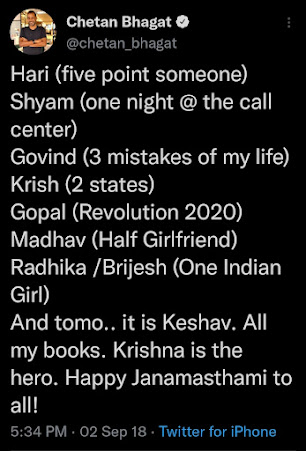(Video-Full Summary of Petals of Blood👆)
Thursday, 30 December 2021
Thinking Activity: Petals of Blood
(Video-Full Summary of Petals of Blood👆)
Monday, 27 December 2021
Thinking Activity: African Poetry
Hello Friends!
Chinua Achebe
Brief Introduction of the poem ‘Vulture’
This article starts with the basic information about Chinua Achebe. Eileen Newman says in his article that Chinua Achebe the Ibo novelist (born 1930) is probably better known for his first novel Things Fall Apart, published in 1958, than for his poetry. This poem, 'Vultures', could also be seen to deal with what happens in a country when 'Things fall apart and the 'blood-dimmed tide is loosed' as W. B. Yeats puts it in his poem, 'The Second Coming'.
He also talks about the paradox in the poem by saying that the title 'Vultures' immediately carries with it a host of repulsive, horrific, and frightening associations, which Achebe expands upon in the main body of the poem. The very awkwardness of these birds is mirrored in the poem's irregular structure. The vulture has an ungainly, shuffling gait, head bobbing, neck pulsating, eyes never leaving sight of its victim. Its jerky movements seem to be almost an apology for its repugnant opportunism.
Achebe takes an image of this creature and its natural behavior as a metaphor for the paradox of man's simultaneous capacity for good and evil. He then explores this paradox more explicitly, reflecting on the fact that good and evil, love and hate, kindness and cruelty can exist together in one being. The poem is set in a country where unburied corpses lie in ditches. Although the background is the Nigerian civil war, the Belsen concentration camp is brought into the poem as a reminder of European atrocities; the issues here are universal. The poem is structured in the form of an argument. Achebe's consideration of the phenomenon of evil in our lives is reminiscent of some of Edwin Muir's philosophical poems in which Muir examines the sudden lurch towards evil. In 'The Good Town' Muir conveys the same bewilderment when he asks: 'How did it come?' and goes on to ask the unthinkable: 'Could it have come from us?' Likewise, Achebe finds it 'Strange/indeed' that love can exist alongside hatred and brutality.
Newman, Eileen. "Chinua Achebe's 'Cultures'." The English Review, vol. 10, no. 2, Nov. 1999, p. 14. Gale Literature Resource Center, link.gale.com/apps/doc/A79411118/LitRC?u=anon~76ee63f4&sid=googleScholar&xid=2f5d376e. Accessed 27 Dec. 2021.
Sunday, 26 December 2021
Thinking Activity: Revolution 2020
Thursday, 23 December 2021
ASSIGNMENTS
👉Assignment: Semester-I
- Literature of the Elizabethan and Restoration Periods
- Literature of the Neo-classical Period
- Literature of the Romantics
- Literature of the Victorians
- History of English Literature – From 1350 to 1900
PRESENTATIONS
- Literature of the Elizabethan and Restoration Periods
- Literature of the Neo-classical Period
- Literature of the Romantics
- Literature of the Victorians
- History of English Literature – From 1350 to 1900
- The Twentieth Century Literature: 1900 to World War II
- The Twentieth Century Literature: From World War II to the End of the Century
- The American Literature
- Literary Theory & Criticism and Indian Aesthetics
- History of English Literature – From 1900 to 2000
- Indian English Literature – Pre-Independence
- Indian English Literature – Post -Independence
- The Postcolonial Studies
- Contemporary Western Theories and Film Studies
- Cultural Studies
Presentation 15: Cultural Studies
Hello Friends!
Here is my presentation on paper 15- Risk Society and Covid 19
Presentation 14 : Contemporary Western Theories and Film Studies
Hello Friends!
Here is my presentation on paper 14- Theory of Deconstruction with Examples
Presentation 13 : The Postcolonial Studies
Hello Friends!
Here is my presentation on paper 13- Postcolonial Theory and Literature: An Overview
Presentation 12 : Indian English Literature – Post -Independence
Hello Friends!
Here is my presentation on paper 12- Biography of Kamala Das
Presentation 11: Indian English Literature – Pre-Independence
Hello Friends!
Here is my presentation on Paper 11-Comparative Study of R.K. Narayan's Malgudi and Thomas Hardy's Wessex.
Presentation 10: History of English Literature – From 1900 to 2000
Hello Friends!
Here is my presentation on Paper 10: The 'Rasa' Theory and the Concept of 'Sublime': A Universal Approach of Bharatmuni and Longinus
Presentation 9: Literary Theory & Criticism and Indian Aesthetics
Hello Friends!
Here is my presentation on paper 10: Dystopian Element in the novel 1984
Presentation 8: The American Literature
Hello Friends!
Here is my presentation on paper 8- Comparison: Poetry of Frost and Wordsworth.
Presentation 7: The Twentieth Century Literature: From World War II to the End of the Century
Hello Friends...
Here is my presentation on Paper 7- Modern Setting: Science Fiction.
Thank you...
Presentation 6 : The Twentieth Century Literature: 1900 to World War II
Hello Friends!
Here is my presentation on Paper 6-The Great Gatsby 1974 VS The Great Gatsby 2013.
Thank you..
Presentation 5: History of English Literature
Hello Friends...
Presentation 4: Lioterature of the Victorians
Hello Friends!
Presentation 3: Literature of the Romantics
Hello Friends!
Here is my presentation about Paper 3 - Scientific Fiction in Frankenstein
Presentation 2: Literature of the Neo-classical Period
Hello Friends!
Presentation 1: Literature of the Elizabethan and Restoration Periods
Hello Friends!
Thank you......
The Last Leaf by O'Henry
#std9 #moments #surprisingendings The most important feature of O. Henry’s writing is the unexpected ending. The story usually...

-
"Postcolonialism Today" Hello Readers On Sunday 22th November we had online session on Postcolonialism organized by iSPELL ( ...
-
We all are passing through the toughest time of CORONA(covid 19) pandemic or epidemic.In this time there are so many questions arise in our ...
-
Important of Mechanics in Research Writing Name -Daya Vaghani Paper- 209 - Research Methodology Roll no-06 Enrollment no -3069206420200017 E...










